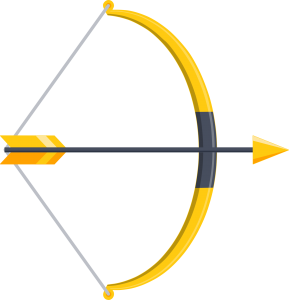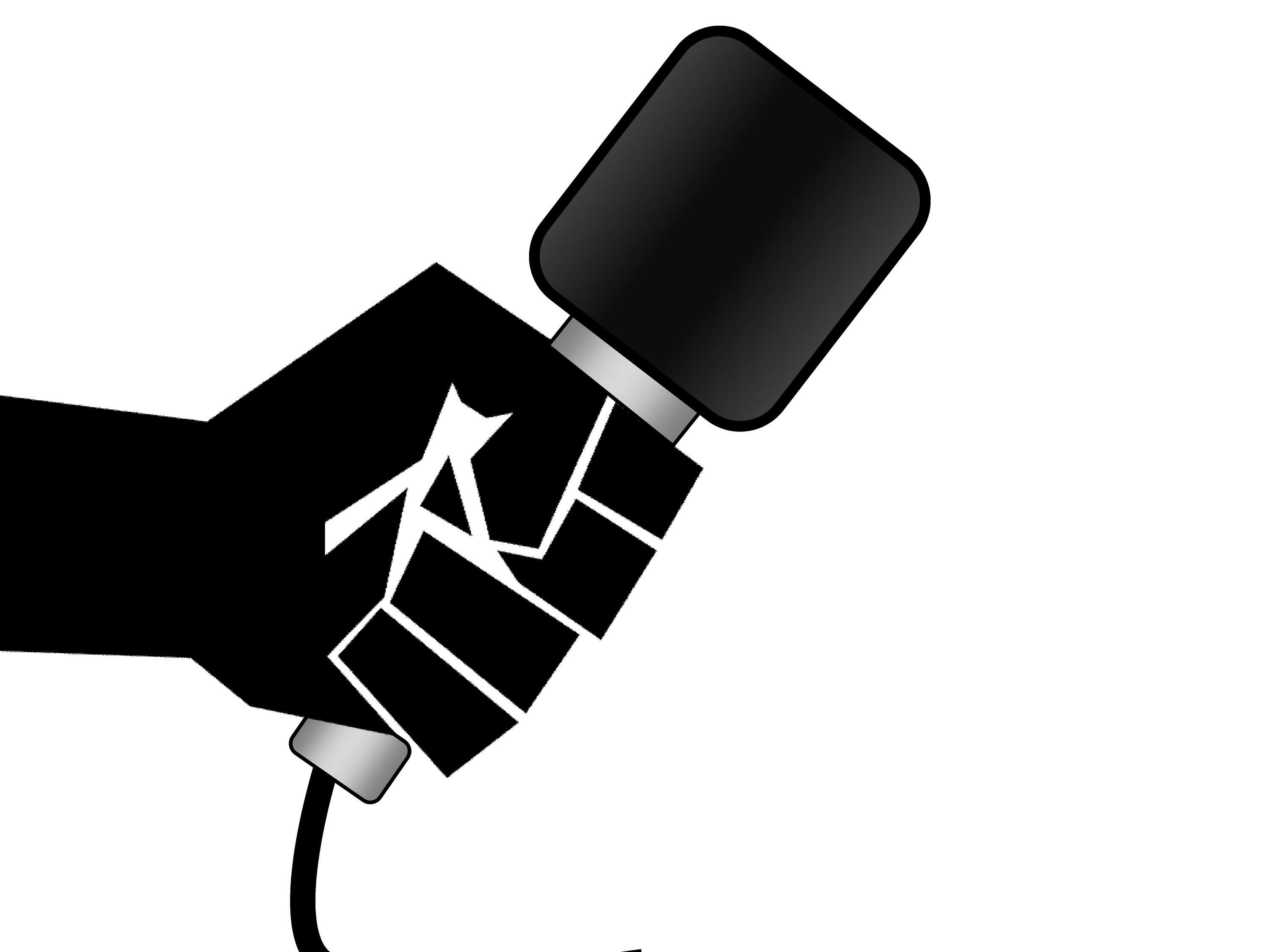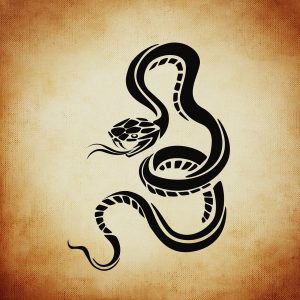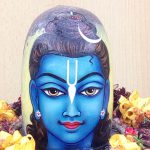

Excerpt from Viśuddha Caitanya-vāṇī by Śrīla Bhakti Vijñāna Bhāratī Mahārāja
When Sugrīva was asked by Lakṣmaṇa to take shelter at the lotus feet of Bhagavān Śrī Rāmacandra, who is Himself the Supreme Lord, he replied, “I will never accept Rāma’s shelter unless and until I thoroughly examine Him and He proves worthy of my surrender.” He then told Śrī Rāmacandra, “Taking only one arrow, I want You to shoot it with Your bow, and in that one shot pierce seven tāla trees. I will only accept You as the Supreme Lord if you can accomplish this.” It was only after Śrī Rāmacandra heeded his request that Sugrīva surrendered at the Lord’s lotus feet, and not before.
Himself the Supreme Lord, he replied, “I will never accept Rāma’s shelter unless and until I thoroughly examine Him and He proves worthy of my surrender.” He then told Śrī Rāmacandra, “Taking only one arrow, I want You to shoot it with Your bow, and in that one shot pierce seven tāla trees. I will only accept You as the Supreme Lord if you can accomplish this.” It was only after Śrī Rāmacandra heeded his request that Sugrīva surrendered at the Lord’s lotus feet, and not before.

Excerpt from Bhakti-rasāyana by Śrīla Bhaktivedānta Nārāyaṇa Mahārāja
Sugrīva’s brother Vāli worshipped the sun-god Sūrya by performing austerities, and then Sūrya appeared before  him and asked, “What boon do you desire?” Vāli said, “I desire the boon that whenever anyone comes before me to fight, I will keep all of my own strength and also take half of my opponent’s strength.” One day after having received this boon, Vāli was at a river offering pūjā to Sūryadeva when the demon Rāvaṇa approached him. Rāvaṇa thought that he was the strongest person in the entire universe, and with his twenty hands began disturbing Vāli by splashing water on him. But Vāli simply continued offering his pūjā with only one hand and with the other he grabbed hold of Rāvaṇa and held him underneath his armpit. Vāli didn’t even look at Rāvaṇa, like one who has killed a mosquito on his back.
him and asked, “What boon do you desire?” Vāli said, “I desire the boon that whenever anyone comes before me to fight, I will keep all of my own strength and also take half of my opponent’s strength.” One day after having received this boon, Vāli was at a river offering pūjā to Sūryadeva when the demon Rāvaṇa approached him. Rāvaṇa thought that he was the strongest person in the entire universe, and with his twenty hands began disturbing Vāli by splashing water on him. But Vāli simply continued offering his pūjā with only one hand and with the other he grabbed hold of Rāvaṇa and held him underneath his armpit. Vāli didn’t even look at Rāvaṇa, like one who has killed a mosquito on his back.
Besides Bhagavān no one could kill Vāli, and even then, Bhagavān had to use some trickery to kill him. Rāma killed him from a hidden position. Otherwise, if He had gone before Vāli, Vāli would have taken half of His strength and Rāma would have also been defeated! Similarly, we can see that for catching Kṛṣṇa, double speed is necessary; then He can be caught. “Double speed” means that our own sincere efforts must be there, and Kṛṣṇa’s mercy must also be upon us. He loves all jīvas, but we must love Him twice as much, and then we can catch Him.

The following is an excerpt from a Śrīmad-Bhāgavatam lecture by Śrīla Gaura Govinda Svāmī Mahārāja on April 12, 1994
Then Vāli vadha. The killing of Vāli the king of the monkeys. There was enormous cruelty in killing Vāli. No one kills a monkey. No one eats the flesh of a monkey. Why would a hunter kill a monkey? A hunter never kills a monkey. So why did the Lord kill him? Because He is an ideal friend. Sugrīva was His friend. There was a friendship between Sugrīva and Lord Rāma. Lord Rāma was an ideal friend in all respects. They suffered the same distress. Sugrīva was banished from his kingdom. His elder brother Vāli had banished him and kept his wife. Lord Rāma was also banished from His kingdom and His wife was kidnapped by Rāvaṇa. Both Sugrīva and Him were bereft of their wives. They both suffered the same distress and became friends.
Sugrīva said, “I will help You. I have a monkey army and I will help rescue Your wife.”
Lord Rāma who was an ideal friend said, “What? Vāli acted in this way? I will kill Vāli. The enemy of My friend is  also My enemy.”
also My enemy.”
Vāli had received the boon that no one could kill him in a face-to-face fight. He was unconquerable because he had received this boon. So, Lord Rāma kept Himself hidden behind a tree and shot an arrow and killed him. There was no face-to-face fighting. One may argue that Lord Rāma had mercilessly killed a monkey. No one kills a monkey. When Vāli was killed, Vāli’s wife Tārā was overwhelmed with grief. She asked many questions and Lord Rāma gave appropriate answers.
She asked, “Was it lawful to kill him? You kept Yourself hidden behind a tree and didn’t fight him face-to-face. Why did You kill him? Was my husband Your enemy? He had not done anything wrong to You.”
Vāli was very powerful you see. Vāli was very powerful. He was more powerful than Rāvaṇa.
Tārā said, “If You would have spoken with my husband, he would have gone to Rāvaṇa and cut-off his śikhā and would have brought him to You. Rāvaṇa was afraid of hearing the name of Vāli. He was so powerful. Why did You kill my husband? He was not Your enemy.”
Lord Rāma said, “Sugrīva is My friend. Your husband was an enemy to My friend. Did he act morally? Is it moral to keep the younger brother’s wife as one’s wife? Your husband committed a great transgression. He committed a great sin! It is inexcusable. No one will excuse this. He kept you as his wife. He deserves punishment. Therefore I must inflict punishment. The enemy of My friend is My enemy. I must inflict punishment upon those who commit great transgressions. I must kill them.”
paritrāṇāya sādhūnāḿ
vināśāya ca duṣkṛtām
dharma-saḿsthāpanārthāya
sambhavāmi yuge yuge
Bhagavad-gītā As It Is 4.8
[To deliver the pious and to annihilate the miscreants, as well as to reestablish the principles of religion, I Myself appear, millennium after millennium.]
“I must kill the miscreants.”
mṛgayur iva kapīndraṁ vivyadhe lubdha-dharmā
striyam akṛta virūpāṁ strī-jitaḥ kāma-yānām
balim api balim attvāveṣṭayad dhvāṅkṣa-vad yas
tad alam asita-sakhyair dustyajas tat-kathārthaḥ
Śrīmad-Bhāgavatam 10.47.17
[Like a hunter, He cruelly shot the king of the monkeys with arrows. Because He was conquered by a woman, He disfigured another woman who came to Him with lusty desires. And even after consuming the gifts of Bali Mahārāja, He bound him up with ropes as if he were a crow. So let us give up all friendship with this dark-complexioned boy, even if we can’t give up talking about Him.]

The following is an excerpt from Śrīla Bhaktivedānta Nārāyaṇa Mahārāja’s commentary in the form of a chapter-endnote on Jaiva-dharma
Sapta-tāla – the seven tāla (palmyra) trees. In Tretā-yuga the monkey chief Vāli once procured seven succulent  tāla fruits. He kept them aside and went to bathe, thinking that he would enjoy them later. Upon his return, he discovered that a poisonous snake had already ruined them. Vāli became furious and cursed the snake to obtain the body of a tree. By the potency of this curse, the snake at once manifested as seven Palmyra trees (Sapta-tāla). The father of the snake was acutely distressed and cursed Vāli in return that whoever could pierce all seven tāla trees with a single arrow would be the cause of Vāli’s death. Later, Śrī Rāmacandra accomplished this feat to assure Sugrīva of His ability to kill Vāli. In Kali-yuga when Śrī Caitanya Mahāprabhu travelled to South India to deliver the jīvas of that place, He came upon the Sapta-tāla trees. Upon seeing them, He became overwhelmed with prema and rushed forward to embrace them. As soon as He did so, the trees disappeared. By the touch of Śrīman Mahāprabhu they were delivered from the state of ācchādita-cetana, covered consciousness. When the local residents witnessed this astonishing event, they could understand that Śrīman Mahāprabhu was directly Śrī Rāmacandra.
tāla fruits. He kept them aside and went to bathe, thinking that he would enjoy them later. Upon his return, he discovered that a poisonous snake had already ruined them. Vāli became furious and cursed the snake to obtain the body of a tree. By the potency of this curse, the snake at once manifested as seven Palmyra trees (Sapta-tāla). The father of the snake was acutely distressed and cursed Vāli in return that whoever could pierce all seven tāla trees with a single arrow would be the cause of Vāli’s death. Later, Śrī Rāmacandra accomplished this feat to assure Sugrīva of His ability to kill Vāli. In Kali-yuga when Śrī Caitanya Mahāprabhu travelled to South India to deliver the jīvas of that place, He came upon the Sapta-tāla trees. Upon seeing them, He became overwhelmed with prema and rushed forward to embrace them. As soon as He did so, the trees disappeared. By the touch of Śrīman Mahāprabhu they were delivered from the state of ācchādita-cetana, covered consciousness. When the local residents witnessed this astonishing event, they could understand that Śrīman Mahāprabhu was directly Śrī Rāmacandra.

The following is an excerpt from Śrī Caitanya-caritāmṛta, Madhya-līlā 1.116, by Śrīla Bhaktivedānta Svāmī Prabhupāda
tabe prabhu kaila sapta-tāla vimocana
setu-bandhe snāna, rāmeśvara daraśana
Śrī Caitanya-caritāmṛta (Madhya-līlā 1.116)
After that, Lord Caitanya Mahāprabhu delivered the celebrated Sapta-tāla trees, took His bath at Setubandha  Rāmeśvara and visited the temple of Lord Śiva known as Rāmeśvara.
Rāmeśvara and visited the temple of Lord Śiva known as Rāmeśvara.
It is said that the Sapta-tāla trees were very old, massive palm trees. There was once a fight between Vāli and his brother Sugrīva, and Lord Rāmacandra took the side of Sugrīva and killed Vāli, keeping Himself behind one of those celebrated trees. When Lord Caitanya Mahāprabhu toured South India, He embraced the trees, which were delivered and directly promoted to Vaikuṇṭha.
Image/Art made possible by Pixabay.com & Krishnapath.org








